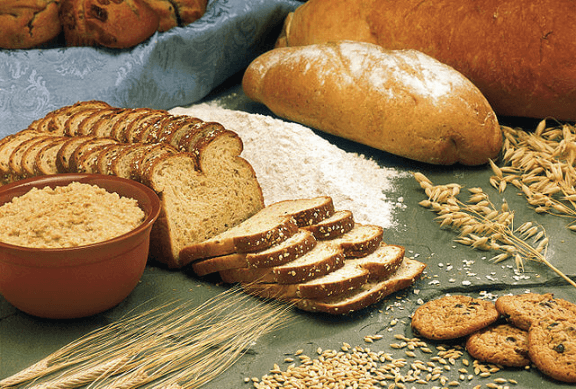What’s the Difference Between Good and Bad Carbohydrates?
What’s the Difference Between Good and Bad Carbohydrates?
February 24, 2017 at 8:21 AM

Over the past 30 years, dieters have gotten conflicting advice. First, you’re told to avoid fat – but then, low-fat products tend to compensate for the lack of flavor by adding sugar. Later, you were told fat was “fine,” as long as you stuck with protein and meat-based foods, and avoided carbohydrates completely. But, doing so cut out fiber, leaving many dieters hungry. Now, “clean eating” and other fad programs tell you do steer clear of anything processed, but the guidelines’ vagueness leaves many thinking they can only eat fruits, vegetables, and beans.
Instead, most nutritionists recommend the average individual get 45 to 65 percent of his or her diet from “good” carbohydrates. But, still, what’s “good” and what constitutes a “bad” carb? We break it down:
Good Carbs
A “good” carbohydrate is full of fiber, which is absorbedly slowly by the body and helps you avoid spikes in blood sugar levels. You usually get these carbohydrates from whole grains, vegetables, fruits, and beans. As a general rule, the higher the fiber content, the more the carbohydrate counts as “good.” The lower it is, especially with a higher percentage of sugar, the lesser the value it has.
A diet high in fiber is said to lower an individual’s risk for developing heart disease. Ideally, men and women under 50 years of age should aim for 38 and 25 grams of fiber per day, respectively. Men and women above 50 years of age should be getting 30 and 21 grams per day, respectively.
Unsure about how much fiber a food has? Check out the “total carbohydrates” portion of a nutrition label and look for the breakdown between “dietary fiber” and “sugar.” The former should compose a greater percentage.
Bad Carbs
But, now that you know what “good” carbs are, what counts as a “bad” one? These usually come from sugar, added sugars, and refined or “white” grains, in which the natural fiber has been stripped away. In your body, “bad” carbs give you a quick energy boost by converting to glucose, but this results in blood sugar spikes.
Unfortunately, for the average American, added sugars – not naturally occurring sugars like fructose – account for about 320 calories per day and have potential to increase an individual’s risks for developing Type II diabetes.
If you’re looking to add more fiber to your diet and find healthful alternatives to high-sugar foods, consider scheduling an appointment with Medical Weight Loss Solutions. Contact us today to schedule a free consultation with our team.


